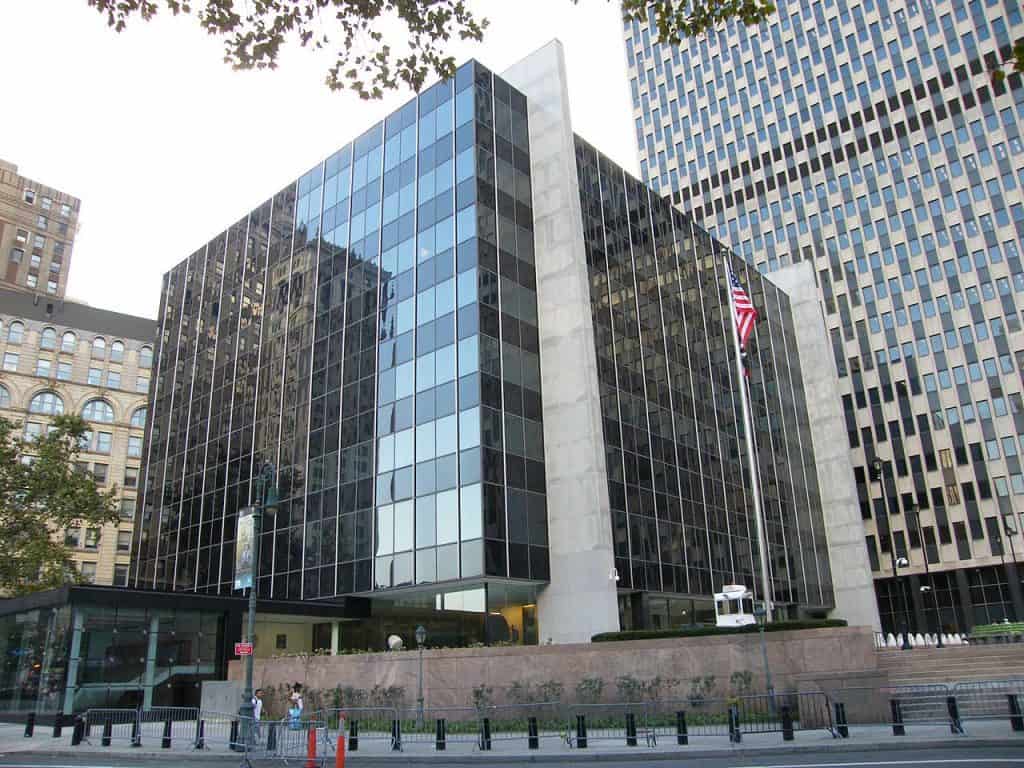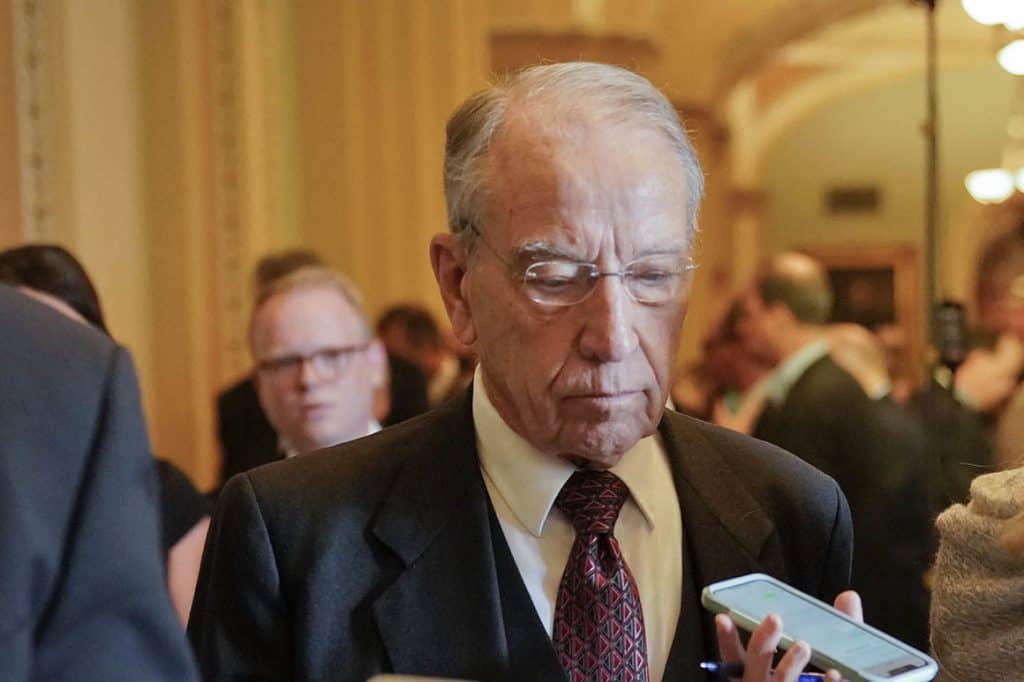
Trade correspondent L.C. reports:
The Court of International Trade in New York heard oral arguments on December 19th against President Trump’s use of the Section 232 (national-defense related) provisions of the Trade Expansion Act of 1962. At issue are the tariffs imposed on steel and aluminum and pending decisions on automotive imports and uranium. Both sides have already declared that if they lose, they’ll appeal directly to the US Supreme Court.
A Supreme Court case, which appears inevitable, would be very interesting for two reasons:
- The case involves the crucial constitutional issue of whether Congress has impermissibly delegated its own law-making powers to the Executive branch. If so, this could ring the death knell to the “Fourth branch” administrative state.
- It is not immediately clear how justices would line up. The liberals might side with plaintiffs in order to limit President Trump’s power no matter what the issue, and conservatives might side with them as well because they favor more limited government (though not necessarily limited executive power) and fewer restrictions on commercial activity. Of course, all nine would justify their decisions on their reading of the Constitution and court precedent.
The case was filed by the American Institute for International Steel (AIIS) and two steel importers. The nub of their case is that Section 232 is unconstitutional because it legislates away to the executive branch broad authority over trade, which Article I, Section 1 of the Constitution reserves for Congress. It thus violates the separation of powers and the “non-delegation doctrine,” which limits how much of its constitutional authority Congress can delegate to the executive branch. Section 232 also allows the president to make decisions and take actions that are not subject to judicial review.
Previous Supreme Court rulings in cases involving delegation of powers held that Congress can delegate power provided it gives the executive branch an “intelligible principle” to guide what it does with the power. The AIIS claims that Section 232 provides no such principle and sets no boundary on what the president can do to restrict trade under 232 or how a national security threat is to be determined.
One of the three judges hearing the case, Claire Kelly, asked defendant’s lawyer (the US government) to name a single product or service on which the president couldn’t impose a tariff on national security grounds: “Could he, say, put a tariff on peanut butter?” She didn’t get a direct answer and then said “It seems Congress has given away an awful lot [of authority]. Maybe it shouldn’t be able to do that.” The judges also questioned Section 232’s lack of judicial review. Judge Gary Katzmann raised the issue of the national security justification given the Defense Secretary’s letter questioning the grounds for imposing the steel tariffs on US allies, saying, “I’m scratching my head about your rationale.
The judges’ questions suggest that they are not dismissing outright the plaintiffs’ position – even though precedents indicate that courts generally defer to the executive branch on issues involving national security — although they haven’t always in immigration cases. But the lawyers for the government were asked serious questions by the judges. The case remains very much alive and uncertain. Nonetheless, most legal observers believe it more likely that the government will ultimately win the case.
Discontent with Section 232 Product Exclusion process
The Commerce Department’s process for ruling on requests by US manufacturers for exclusion of products from the Section 232 steel and aluminum tariffs continues to falter, causing increasing problems for metal-using industries. Pressure is building on Commerce to correct the situation.
On December 17th Senate Finance Committee Chairman Orrin Hatch (R-UT) and committee ranking Democrat Ron Wyden (D-OR) sent a letter to Commerce Secretary Ross calling on him to deal with the problems, which include:
- Exceeding the stated 106-day maximum for producing final decisions on requests (some requests have been pending over double that time);
- Faulty and contradictory guidance and lengthy delays when companies seek help from the department;
- Failure to provide a communication system free of glitches.
The senators requested a prompt response, including details of how the department intends to remedy the problems.
Grassley again calls for curbing President’s trade authority

Sen. Chuck Grassley (R-IA), the incoming chairman of the Senate Finance Committee, gave a speech on the Senate floor on December 20th in which he outlined the committee’s “Trade Priorities for the 116th Congress.” Most notably, he said once again that he intends “to review the President’s use of power under Section 232.” The senator indicated his interest in the Portman bill earlier this month when he told reporters he would take a favorable view of legislation which, like that bill, limits the Administration’s power to impose unilateral tariffs on dubious security grounds.
In his December 20th statement, Grassley said:
While I agree with the President that we must have fair trade that benefits Americans, I’m not a fan of tariffs….Our Founding Fathers were explicit in placing this responsibility with the Congress in Article One of the Constitution. We must remain vigilant to ensure that the aspects of trade authority that Congress has delegated are used… in the best interest of our country…. I strongly disagree with the notion that imports of steel and aluminum, automobiles, and auto parts somehow could pose a national security threat.
The senator also called the Section 301 (unfair trade) tariffs “not ideal,” but said “The President is absolutely right to confront China regarding the Section 301 findings….China gets away with so much that the WTO systems that we rely on have failed and are in great need of reform….[T]hat China… can self-certify as a ‘developing economy’ is extremely frustrating…. I have a great interest in the WTO reform process that has begun….International trade is a force for good.”
More on the subject of China
The government of China came under coordinated international rebuke this week for working directly with hackers over the past decade to steal both commercial and official secrets from companies and governments in a dozen countries. The US indicted two Chinese nationals on December 20th, detailing their activities and targets and their intelligence connections. Japan, the UK, Canada, Australia, and New Zealand came out with formal statements making similar accusations against Beijing on the same day. Germany is expected to join them. Apart from Japan and Germany, these countries form the “Five Eyes” intelligence alliance.
The new indictments charge Zhu Hua and Zhang Shilong with conspiracy to commit computer hacking, wire fraud, and aggravated identify theft, working with a hacking group known as APT10. The group operates under the direction of the Ministry of State Security (MSS). Since 2006, APT10 has
- Stolen data from at least 45 US tech companies and government agencies;
- Targeted service providers with phishing schemes to gain access to access trade secrets and intellectual property from them and their clients;
- Stolen personal data of more than 100,000 members of the US Navy;
- Hacked a variety of other advanced tech sectors, as well as oil and gas, automotive products, financial services, biotechnology firms, NASA’s Jet Propulsion Lab, the Goddard Space Center, and an Energy Department national lab.
The twelve countries known to have suffered intrusions by APT10 are Brazil, Canada, Finland, France, Germany, India, Japan, Sweden, Switzerland, the UAE, the UK, and the US.
You didn’t build that
Meanwhile in Beijing on December 18th, self-appointed dictator-for-life Xi Jinping gave a major address to the country’s Communist Party, which he heads in addition to the other top posts he monopolizes. His nationalistic speech focused on the central role of the Communist Party in guiding everything China has accomplished in the past several decades. The reality is that it was the private sector, not the Communist government, that created that prosperity.
Xi’s speech continued his backtracking from the market-based reforms undertaken by Deng Xiaoping before Xi assumed power. Xi declared: “We must support an open, transparent, inclusive and non-discriminatory multilateral trading system.” This is Xi’s rote call for the rest of the world to be open to China — not a pledge that China will open more to others.
The White House meanwhile has given China 90-day notice that if it hasn’t resolved its trade disputes with the US by March 1st, the present 10% tariff on $200 billion of Chinese imports to the US will be raised to 25% on March 2nd. By way of warning, trade adviser Peter Navarro gave a December 21st interview to the Japanese financial publication Nikkei in which he accused China of “basically trying to steal the future of Japan, the US and Europe by going after our technology.”

Leave a Reply